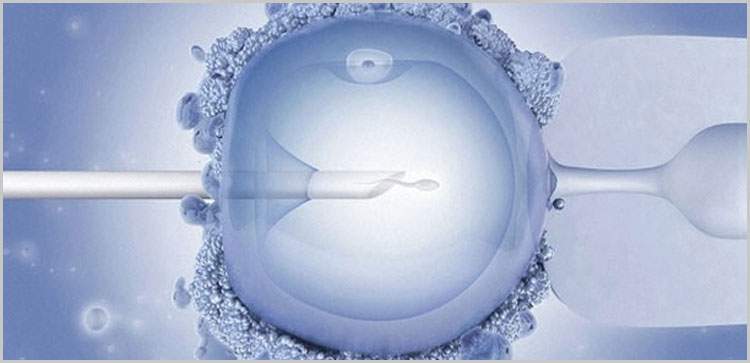Intracytoplasmic Sperm Injection (ICSI) is another type of assisted reproduction technique. The procedure can be used to complete IVF treatment to help couples conceive. It is one of the most successful artificial treatments used in case of infertility.
What ICSI really means
It is a scientific method of reproduction that requires a single sperm to be directly injected into the egg for fertilization. This procedure is mostly taken in cases of severe male infertility and in case IVF treatment did not be of help in the past.
Where ICSI may be recommended
- Where there is need to select the best sperm for fertilization
- In case of ejaculation problems
- In cases of a very low sperm count
- In case a given genetic disease needs to be avoided
- In case of abnormally shaped sperms
- Cases where the sperm doesn’t show in samples
The success rate of ICSI
It normally depends on the cause of the infertility problems
The age and the health of the eggs matters which means that the more health eggs produced the higher the success rate of pregnancy. One can take a look at the success rates depending on the age of the female
43 % chance if one is aged 34 and below
39% in case aged 35 to 37
30% in case aged 38 to 39
22 % in case aged 40 to 43
Conventional IVF methods normally increase the success rate of ICSI treatment
Male infertility and ICSI Treatment
ICSI is recommended in cases of severe male infertility. Males who have had a vasectomy can be helped through this procedure. Different sperm problems can also be solved by ICSI and in other cases as the doctor may recommend
Before the Procedure
Fertility drugs are given to the woman to stimulate ovaries to produce healthy and more eggs. The follicles are monitored by the doctor through an ultrasound and blood tests until the ovaries show that the eggs are mature to be retrieved.
The Process of ICSI
- Egg Retrieval
The eggs are extracted from the woman while sedated. A fine hollow needle that is attached to an ultrasound probe is used to remove the eggs from the ovaries.
There may be light bleeding and have a feeling of sores after the egg retrieval
A progesterone injection is given to the woman to prepare the uterine lining for the egg transfer.
- The sperms
Sperms are collected on that same day when fertilization is to take place. Some doctors may prefer already frozen sperms, but there is no difference between the fertilization of the frozen sperm or that which is harvested through masturbation on that day.
The semen is washed and the best sperm is collected
- Fertilization
A single sperm is directly injected into the egg for fertilization to occur. The egg and the sperm are cultured for some time until cell division occurs.
The eggs can be left in the laboratory and transferred after 5 or 6 days after fertilization.
- Embryo Transfer
The well-developed embryo will be chosen for the transfer.
While lying on the gynae’s table, a catheter is placed in the cervix
One or two embryos are transferred through the catheter and the cervix with the help of an ultrasound.
The doctor may also recommend Blastocyst transfer in order to increase the chances of a successful pregnancy. It can also be recommended for having a single healthy baby.
The ICSI procedure
It is normally performed using the micromanipulation technique. It requires a doctor to use a special microscope with small surgical tools to harvest eggs and a single sperm to be directly injected into the egg. ICSI Treatment in India is performed with maximum care just like other assisted reproductive techniques since many mistakes can occur.
Risks associated with ICSI Treatment or side-effects
- Eggs stand a chance of being damaged
- There are cases that ICSI result in low sperm count for the boys produced through this technique
- Risks of genetic problems can be expected
- Increased chances of neonatal abnormalities
- Multiple pregnancies
- Failure of the embryo to grow after fertilization
- Ovarian hyperstimulation syndrome
Advantages of using ICSI treatment
- A good treatment for male infertility
- A couple can get a genetic child out of ICSI
- It shows no chances of mental or physical defects in a child
On the other hand, ICSI is expensive than at times IVF. It is a successful treatment and many people who go in for it have failed to be successful with IVF. Special monitoring of a patient is required to avoid the numerous side-effects and risks associated with ICSI treatment.
The cost of ICSI treatment in India
The basic ICSI treatment cost in India per cycle ranges from Rs. 2, 40, 000 to Rs. 2, 50,000. In case there is need to use more advanced assisted technology, there will be additional costs of Rs.1, 45,000 to Rs.2, 51,000. The costs in each case differ with the difference in the hospital visited or the doctor.
Assisted reproductive techniques have helped numerous couples conceive healthy babies. Effective treatment and care will help a patient feel comfortable during the treatment cycles. It is advisable that a patient follows the doctor’s advice with effective communication as may be required to avoid risks and complications. Hundreds of infertile couples have conceived through ICSI, have a consultation with an expert to determine your chances of conceiving.

